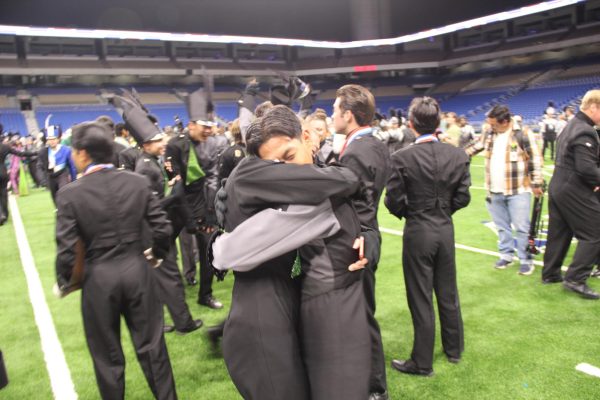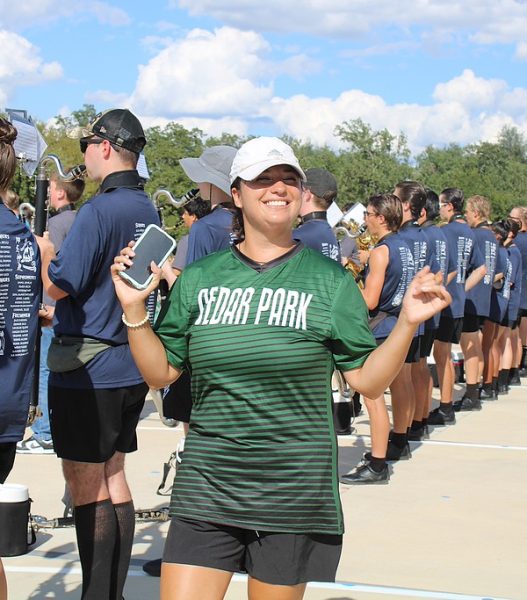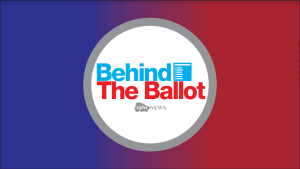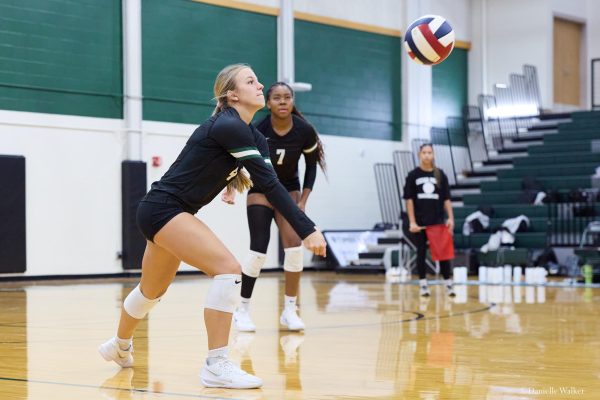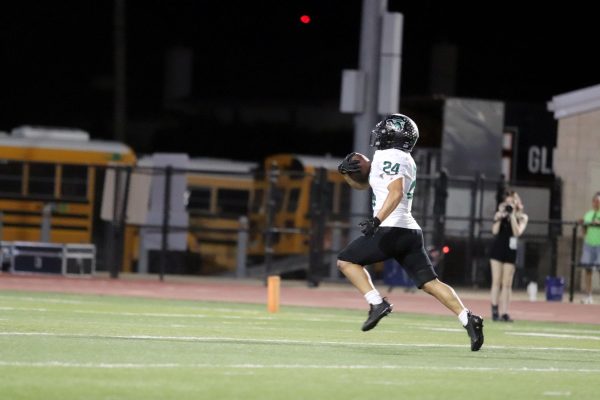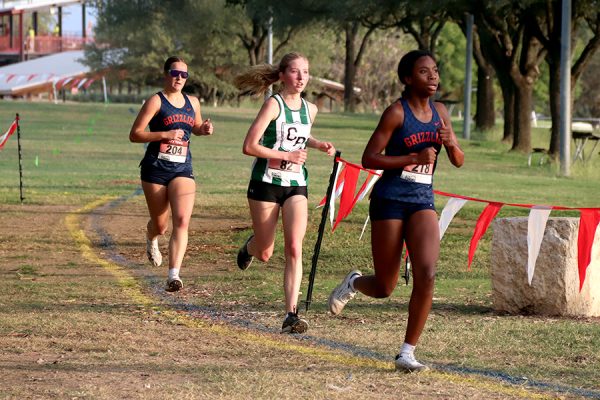Let the Madness Begin
‘Hunger Games’ Wins Competition Between Top Read Books
The winner of the Library March Madness is ‘Hunger Games’ by Suzanne Collins. Due to its popularity, the book was able to stay strong throughout the multiple rounds of the competition, according to Assistant Librarian Jennifer Baskin, who applauded the book for its years of success and relevance. “I pretty much knew that was going to be the winner from the get,” Baskin said. “I was kind of hoping that I would be surprised that [‘Hunger Games’] wasn’t the winner, but I understand why. It’s pretty popular, and a lot of people read that book, and it was their introduction to reading. That’s something that got them excited about reading, so it makes sense that they would still be excited about it. I think that book has held up, just sort of like ‘Harry Potter’, or ‘The Lightening Thief’. It holds up even when I read it as an adult, but I was still surprised that it was still going so strong.”
April 4, 2022
Five rounds, 32 books, one winner. Librarians Debby Barnes and Jennifer Baskin have introduced a new level of March Madness: one that involves books and the “madness” of reading.
The winner of the March Madness was “Hunger Games” by Suzanne Collins, announced Friday, April 1. The popularity of the book, according to Baskin, is what led the book to remain relevant for all these years, and one of the biggest factors that contributed to the book’s victory.
“I pretty much knew that was going to be the winner from the get,” Baskin said. “I was kind of hoping that I would be surprised that [‘Hunger Games’] wasn’t the winner, but I understand why. It’s pretty popular, and a lot of people read that book, and it was their introduction to reading. That’s something that got them excited about reading, so it makes sense that they would still be excited about it. I think that book has held up, just sort of like ‘Harry Potter’, or ‘The Lightening Thief’. It holds up even when I read it as an adult, but I was still surprised that it was still going so strong.”
This version of “March Madness” involves choosing between a list of 32 books, pitted against each other in the typical “March Madness” bracket format. Baskin and Barnes together crafted a list of the most checked out books of all genres from the school library and decided to create a competition in which students get to vote for a book of their choice in each bracket. The winner of each of those brackets will then advance on and on until the final round, where the two books with the most votes are pitted against each other. Books from all genres, from classic to modern were selected, with each round gathering results.
“I was surprised at how well the classics did,” Baskin said. “They did really great, but honestly, looking at the statistics for the most checked out [books], the top four most checked out books are the ones that are at the top that are currently winning. Nothing too surprising, just because I can see the overall checkouts, so it makes sense that the ones that get checked out the most are the ones that are at the top of the chart. But I was definitely surprised that some books won; the book that I wanted to win got knocked out last week.”
The idea began as a result of the growing popularity among March Teacher Madness. Baskin said she went according to the whole ‘March Madness’ theme of the month, so she applied that to literature and reading.
“I wanted to do something that was more engaging,” Baskin said. “It’s always fun to vote, but it also familiarizes you with those texts more, and what they’re about. If you keep looking at [the results] from week to week, and [certain books] are winning, you might be more encouraged to try that book out.”
According to Baskin, the first two rounds of the voting process went well. With a total of four rounds, students were engaged with the process. Books that are displayed on the chart are also available for checkout at the front.
“I’ll have people just pull [books] directly from that table,” Baskin said. “I’ve also had people checking them out, but then these are already the top requested anyway, so they’re already kind of more checked out. But I have seen kids who don’t normally check out those kinds of reads checking them out. I would say more engagement, and maybe even just more knowledge. It’s interesting how some of [the books] do well because they have more copies. If a book has been checked out a lot, the capability to check it out is a lot more if it’s available, so that kind of factored into the engagement. As a library assistant and librarian, it informs us on what we might want more copies of.”
Barnes and Baskin are preparing for the literary winner of the competition. When a book has won, it will be put on display at the library.
“We might make a little chart that says what [the winner] is,” Baskin said. “Just for the purpose of knowing. If you’re coming in for a recommendation, that could be a part of it, so its more for [knowing].”
The goal behind the Library March Madness was to increase engagement with different kinds of books. Baskin said she wanted to familiarize student readers with more kinds of books, and provide an opportunity for them to easily find a new book to read.
“The goal was just familiarizing readers with more books,” Baskin said. “Those books are the top read for a reason, so they must be pretty good and identify with a lot of our readers. [Readers who read these books] are people your age, and from your same kind of background. If they like them, the chances are great that you might like them. If you’re not much of a reader, you don’t want to take chances on something that you could spend a lot of time just draining plot. This way, it’s just a way for you to get into reading without a lot of effort.”




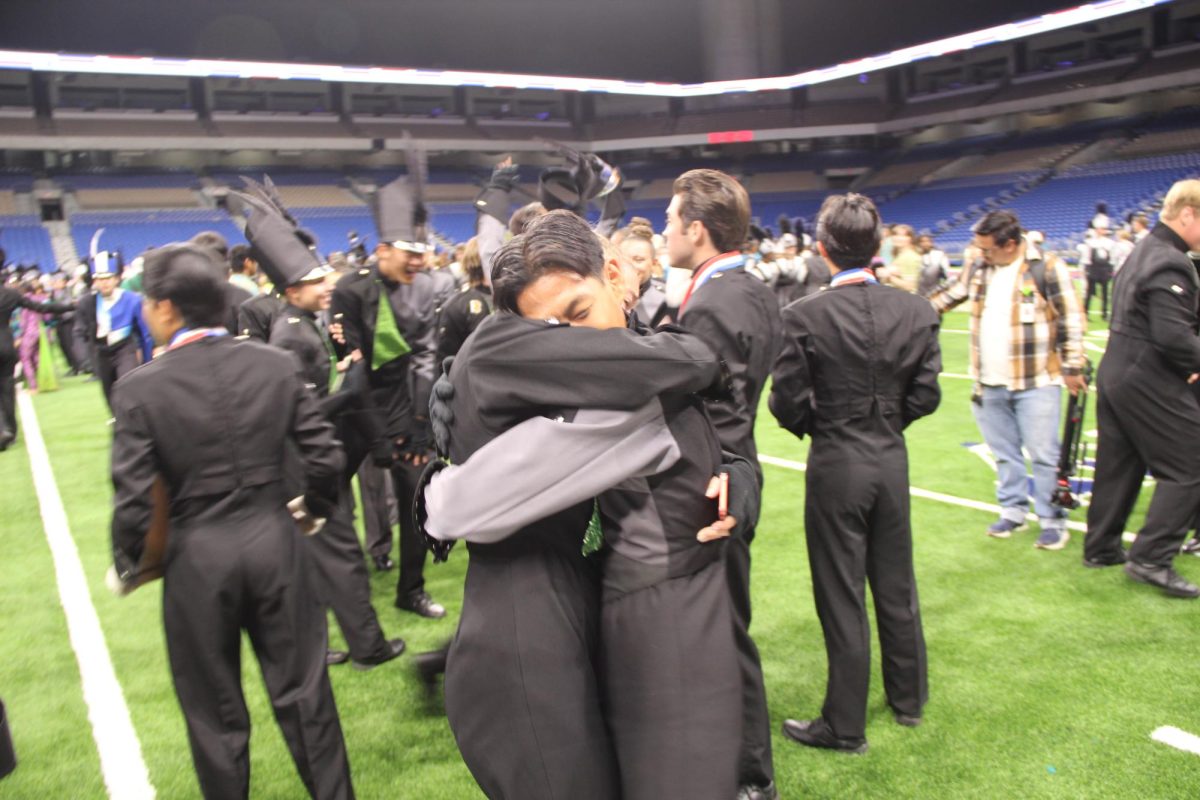
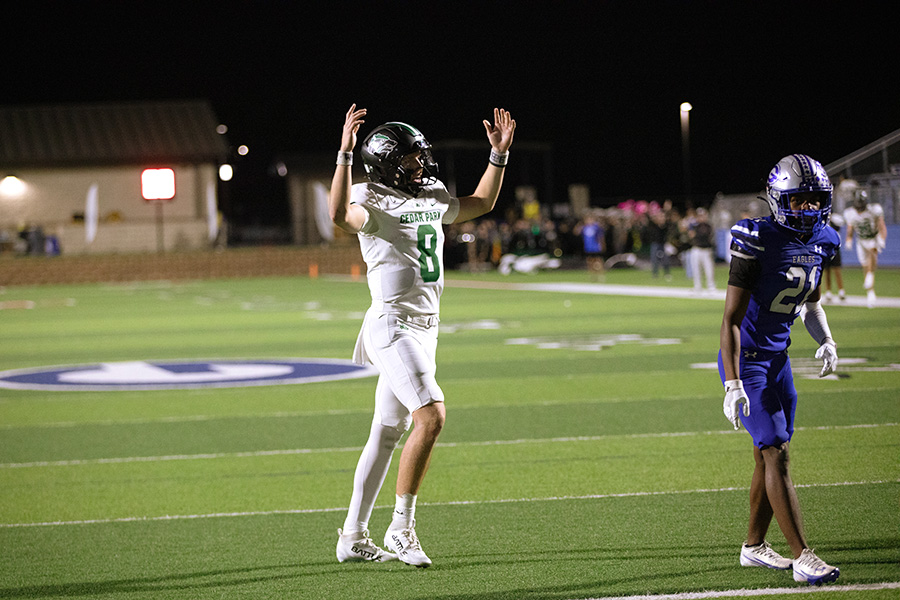
![Senior Jett Mckinney stores all the clothes in his own room, with half of it stored in his closet along with his personal clothes, and the rest taking up space in his room.
“There’s been times [when] there’s so much clothing stored here and it gets overwhelming, so I end up having to sleep somewhere else in the house,” Mckinney said.](https://cphswolfpack.com/wp-content/uploads/2025/11/DSC_0951-1200x800.jpg)



![Broadcast, yearbook and newspaper combined for 66 Interscholastic League Press Conference awards this year. Yearbook won 43, newspaper won 14 and broadcast took home nine. “I think [the ILPC awards] are a great way to give the kids some acknowledgement for all of their hard work,” newspaper and yearbook adviser Paige Hert said. “They typically spend the year covering everyone else’s big moments, so it’s really cool for them to be celebrated so many times and in so many different ways.”](https://cphswolfpack.com/wp-content/uploads/2025/05/edited-ILPC.jpg)




![Looking down at his racket, junior Hasun Nguyen hits the green tennis ball. Hasun has played tennis since he was 9 years old, and he is on the varsity team. "I feel like it’s not really appreciated in America as much, but [tennis] is a really competitive and mentally challenging sport,” Nguyen said. “I’m really level-headed and can keep my cool during a match, and that helps me play a bit better under pressure.” Photo by Kyra Cox](https://cphswolfpack.com/wp-content/uploads/2025/09/hasun.jpg)

![Bringing her arm over her head and taking a quick breath, junior Lauren Lucas swims the final laps of the 500 freestyle at the regionals swimming competition on date. Lucas broke the school’s 18-year-old record for the 500 freestyle at regionals and again at state with a time of 4:58.63. “I’d had my eye on that 500 record since my freshman year, so I was really excited to see if I could get it at regionals or districts,” Lucas said. “ State is always a really fun experience and medaling for the first time was really great. It was a very very tight race, [so] I was a bit surprised [that I medaled]. [There were] a lot of fast girls at the meet in general, [and] it was like a dogfight back and forth, back and forth.” Photo by Kaydence Wilkinson](https://cphswolfpack.com/wp-content/uploads/2025/03/Kaydence-2.7-23-edit-2.jpg)
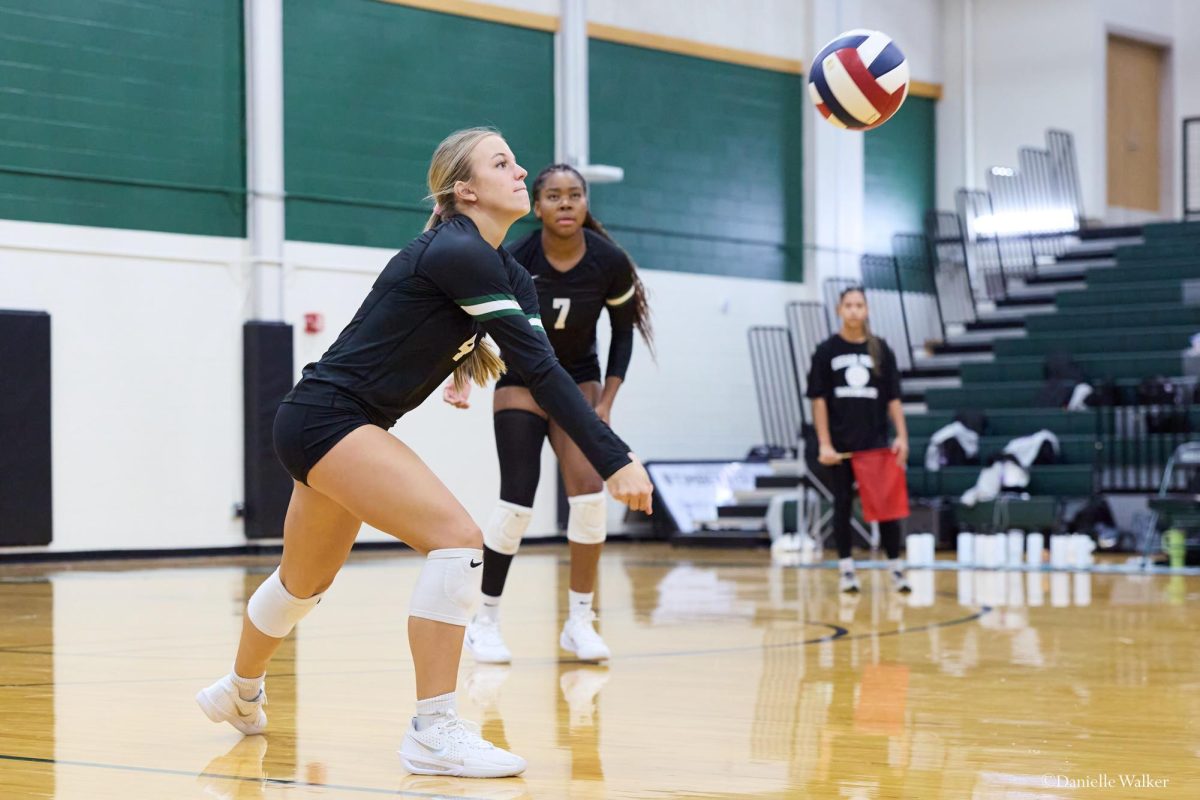

![As her hair blows in the wind, senior Brianna Grandow runs the varsity girls 5K at the cross country district meet last Thursday. Grandow finished fourth in the event and led the varsity girls to regionals with a third place placement as a team. “I’m very excited [to go to regionals],” Grandow said. “I’m excited to race in Corpus Christi, and we get to go to the beach, so that’s really awesome.” Photo by Addison Bruce](https://cphswolfpack.com/wp-content/uploads/2025/10/brianna.jpg)

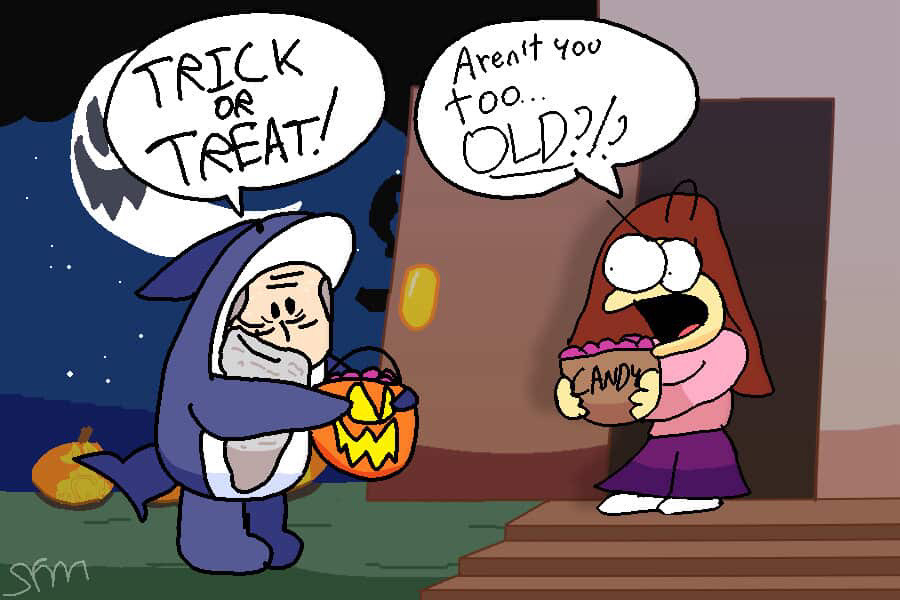













![The winner of the Library March Madness is 'Hunger Games' by Suzanne Collins. Due to its popularity, the book was able to stay strong throughout the multiple rounds of the competition, according to Assistant Librarian Jennifer Baskin, who applauded the book for its years of success and relevance. “I pretty much knew that was going to be the winner from the get,” Baskin said. “I was kind of hoping that I would be surprised that [‘Hunger Games’] wasn’t the winner, but I understand why. It’s pretty popular, and a lot of people read that book, and it was their introduction to reading. That’s something that got them excited about reading, so it makes sense that they would still be excited about it. I think that book has held up, just sort of like ‘Harry Potter’, or ‘The Lightening Thief’. It holds up even when I read it as an adult, but I was still surprised that it was still going so strong.”](https://cphswolfpack.com/wp-content/uploads/2022/04/IMG-0766-900x616.jpg)
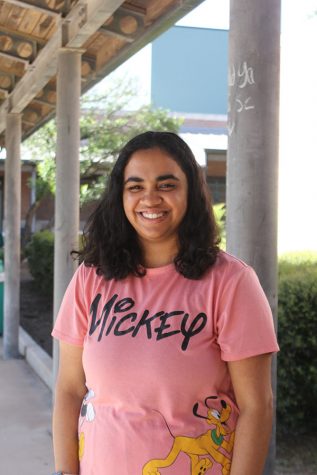
![Holding a microphone, baseball booster club president Chris Cuevas announces the beginning of the annual cornhole tournament. The event has been held for the past two years and is designed to raise money for the baseball program in a fun way. “We’re a baseball team, so people love to compete,” Cuevas said. “So we figured we better do something that gets [their] attention. They want to compete. It’s not a hard sport to do, and we have all different [skill] levels [of participants].” Photo by Henry Mueller](https://cphswolfpack.com/wp-content/uploads/2025/11/Henry-715-1200x900.jpg)





